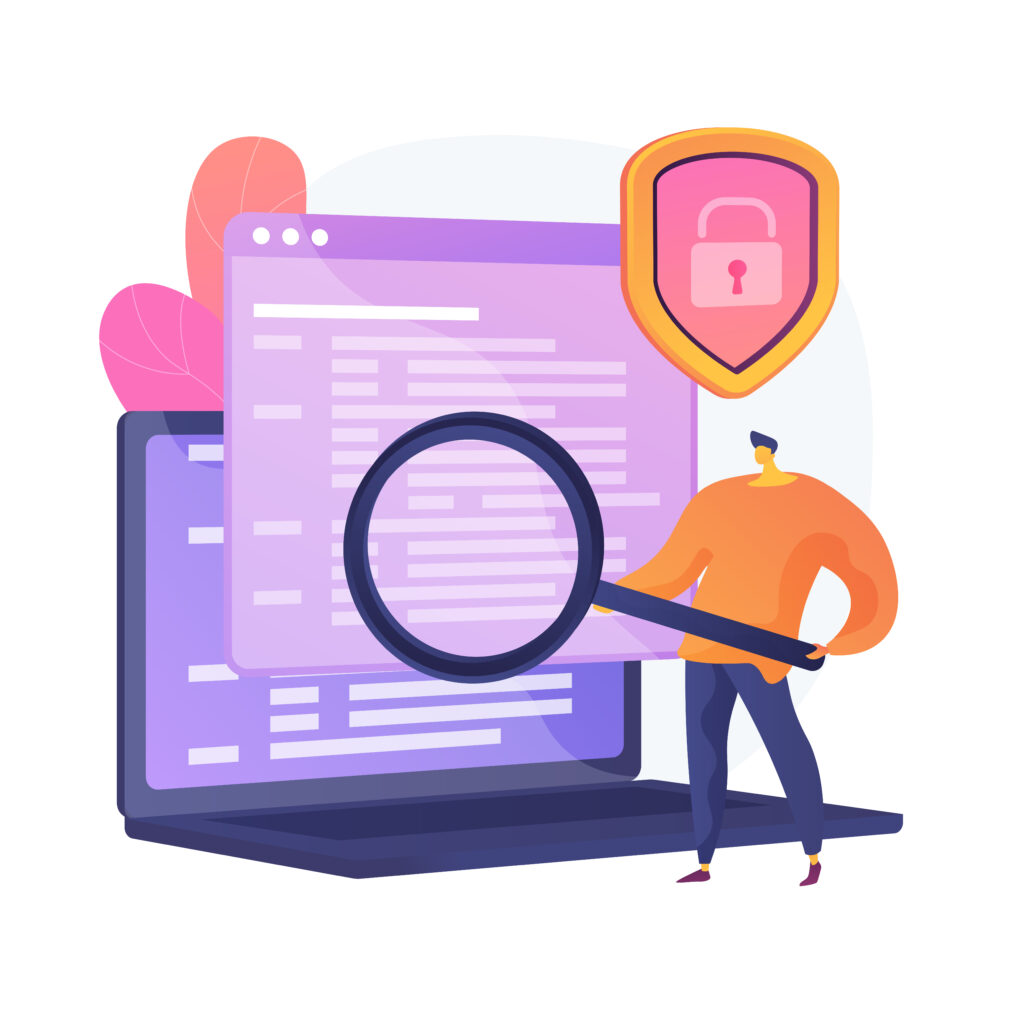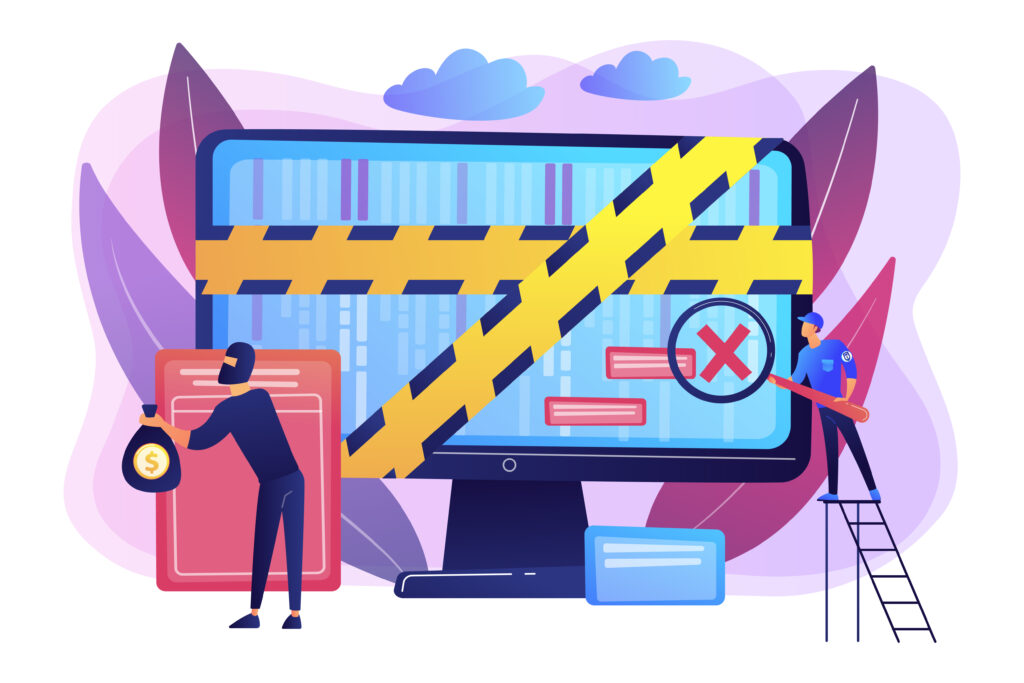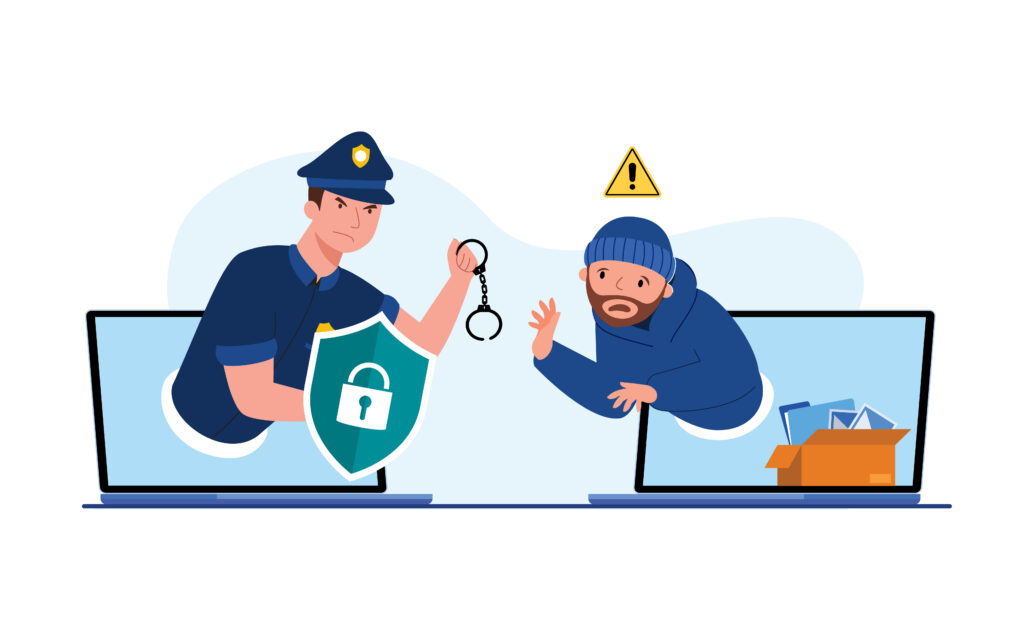The chapter on digital forensics covers identification, recovery, analysis, and preservation of evidence or trials in the digital system. In the era of technology, fraudulent activity became mainstream. It called for cybersecurity experts, a particular branch of digital nomads that can track the scene but sitting behind a computer. Digital devices leave traces of activity and data. A digital forensic expert can modify or crack them open to know what’s going on and report accordingly. Fixing the vulnerability is also part of the job. Most of the time, they work with government or specialized security teams. Nevertheless, to qualify as a digital forensic expert, knowledge of data extraction from various devices and operating systems is required.
Digital Forensic Experts are also known as Infosec Specialists, Digital Forensic Engineers, Digital Forensic Investigators, Digital Forensics Examiners, Digital Forensic Analysts, Digital Forensic Analysts, Digital Forensic Specialists, etc. Though there are many names we can call a forensic expert who works on offensive security, their target is quite the same. It is the experience level that differentiates which category the specialist should work on. Someone with more experience works on high-level breaches and threats. On the other hand, less experienced forensic experts work with smaller companies and serve customers directly.

More people than ever conduct office, transactions, and various delicate tasks online. Alongside it, the criminal justice system came online too. These slots have experts who know how to break down a crime scene digitally. As businesses are coming online, they have at least one computer that helps with online connectivity. It can open a backdoor for interested third parties. Criminals and hackers can infiltrate the system and steal information.
What does a Digital Forensic Expert Do?
Experts in the sector can extract evidence from all kinds of computing systems and prepare reports accordingly. Cyber-attacks can go the extra mile than typical website services taken out. Digital forensic expert sees through that and finds a loophole in the system that attacker used, traces it. Even if traces are no longer available, an expert will try to determine how the attack took place. In the end, fix the issue by minimizing loss and shut down the weak point.

Computer forensic science. Digital evidence analysis, cybercrime investigation, data recovering. Cybersecurity expert identifying fraudulent activity. Collected from Freepik
Reconstructing digital information, analyzing data, solving crimes are day-to-day actions of a digital forensic expert. Other tasks with the title include data recovery from hard drive, finding and exploring evidence, writing investigation reports, work with the security department, so on. They are also called at crime scene houses to recover files from victim machines protected from the public and have secure login credentials. Private companies and government hire only the best digital forensic expert as it is a delicate job. Even before hiring an expert, the security and law enforcement department does swift background checking of the individual. It can be both digital and social.
Previously digital forensics was referred to as computer forensics. But mobile devices, cloud computing, the Internet of Things (IoT), and cybersecurity technologies became broader. It led to a whole sector for individuals to go far beyond technical knowledge and design secure workflow.
Licensing and Certifications:
There is no bound of knowledge and expertise one can have that is more than enough. As cybersecurity is gradually evolving, so are the techniques and education. A digital forensic expert needs to stay on top of the system. But to become a seasoned veteran in the sector, some licensing is required. They can vary by requirement from organization to organization. Private investigators need to go through a criminal background check and, most importantly, licensing exams.

Cyberattack. Law enforcement. Criminal stealing money online. Computer forensics, digital forensic science, computer crime investigation concept. Collected from Freepik.
There are lots of certifications available that helps get to the doorstep of a professional workplace. However, a university degree is not required but allows one to have one. Digital forensic experts usually get into the sector via certification and employer assistance. Some certifications are:
- Certified Computer Forensics Examiner (CCFE)
- Certified Penetration Tester (CPT)
- Certified Reverse Engineering Analyst (CREA)
- Certified Computer Examiner (CCE)
- Certified Forensic Computer Examiner (CFCE)
- Certified Ethical Hacker (CEH)
- EnCase Certified Examiner (EnCE)
- Certified Forensic Analyst (GCFA)
- Certified Information System Security Professional (CISSP)
- International Society of Forensic Computer Examiners (ISFCE)
- Global Information Assurance Certifications (GIAC)
There are also a few steps that go a long way to become a digital forensic expert; they are
Education: College degrees and programs are essential to get in front of potential employers and choose career paths. Computer Science, Computer Engineering, Information Security, Mathematics, Cybersecurity are a few highly beneficial courses.
Staying UpToDate: We can’t stress this enough, as practical skill in the sector matters and differentiates between a hobbyist and a professional. Most technically advanced people would browse through sectors of cybersecurity and ethical hacking. But they won’t go that far to take in into a professional career. However, a hobby helps to keep busy and acquiring essential skillset. But to be proficient in a field, there is a lot of grinding involved.
Choosing a career: Choosing a career in the digital forensic sector involves professional training, education, experience, and a certain level of adjustments. It can be pretty difficult for young people to choose the forensic sector over software development or other categories. There are tons of professional organizations like The Scientific Working Group on Digital Evidence (SWEDGE) that welcomes people in the scene.
Experience to become a Digital Forensic Expert:
We already broke down the sector into many categories essential to every aspect of becoming a digital forensic expert. But what matters in the industry and comes ahead of everything is experience. A digital forensic expert is a highly technical person with lots of expertise in the bag. Basics one should look forward to:
- Intermediate to advanced level programming in multiple languages, e.g., Python, Java, Bash, PHP, C+, assembly, etc.
- Low-level understanding of highly technical terms.
- Server-sided knowledge with data allocation, modification with different levels of access.
- Operating systems including Linux-based distributions, mobile.
- Network and hardware.
- Forensic tools and scripts, ability to develop an individual script for custom cases.
- Password cracking, not just brute force or dictionary attacks.
- Backup and cleaning traces.
- Encryption, decryption, cryptography, hashing, etc.
- Ability to gather delicate resources when necessary and ask for help without hesitation.
Of course, there are plenty more, and going through it will unlock more doors.
Understanding Data Forensics:
The two most common types of file systems are NTFS and FAT. In the earlier days, hard disk drives were not available. File Allocation System (FAT) was used in personal computers. It is utilized by pointing out files starting cluster. It was how files were used. FAT could carry out simple information like filenames, date, time, file attributes, and directory names. But after we succeeded with tech, new storage formats appeared that are easy to use and faster. Faster means more work done efficiently, without burning too many resources. FAT32, FAT 12, FAT 16, VFAT were some of the variants.

Digital Forensic Expert, image Designed by Freepik
Once the commercial computer market exploded, NTFS took the world by storm. It killed FAT for the betterment of computing systems. They have enhanced file attributes, alternate data streams, file compression, encryption like LZ77, mount point, shadow copy, etc. They add logical volume to the system, which is great for files and tasks. But alongside makes them harder to crack. Different methods and protocols may surround the process of data extraction when a requirement is placed. It is one of the important points, and we couldn’t leave without mentioning it.
Summarizing:
With the rapid growth of technology, becoming a digital forensic expert should give one a massive boost in early career succession. Demand is constantly growing in the tech sector, and while there are tons of great programmers, dedicated forensic experts are a little short by number. To fill that void, we need as many experience personals as possible.
Law enforcement agencies, organizations, cyber-criminal departments, network administrators are always looking for digital forensic experts. They pay high salaries to the suitable candidate. According to PayScale, $50,000-$114,000 are the average salary for digital forensic experts, and one position even offered $160,000. Attached to it are company beneficiaries and a genuinely motivating workplace.
Hope this article serves as a guide and provides essential information regarding becoming a digital forensic expert.

Leave a Reply